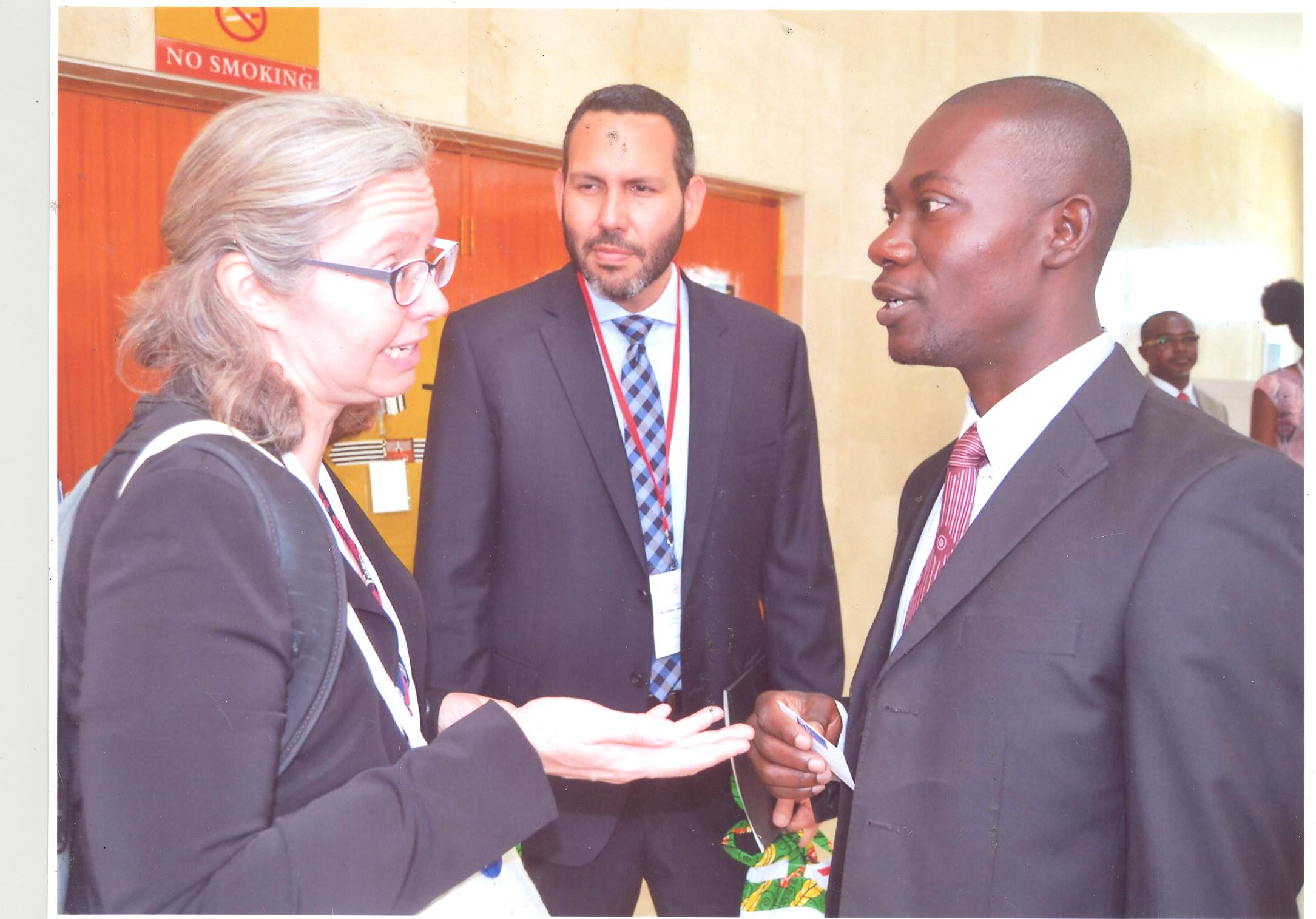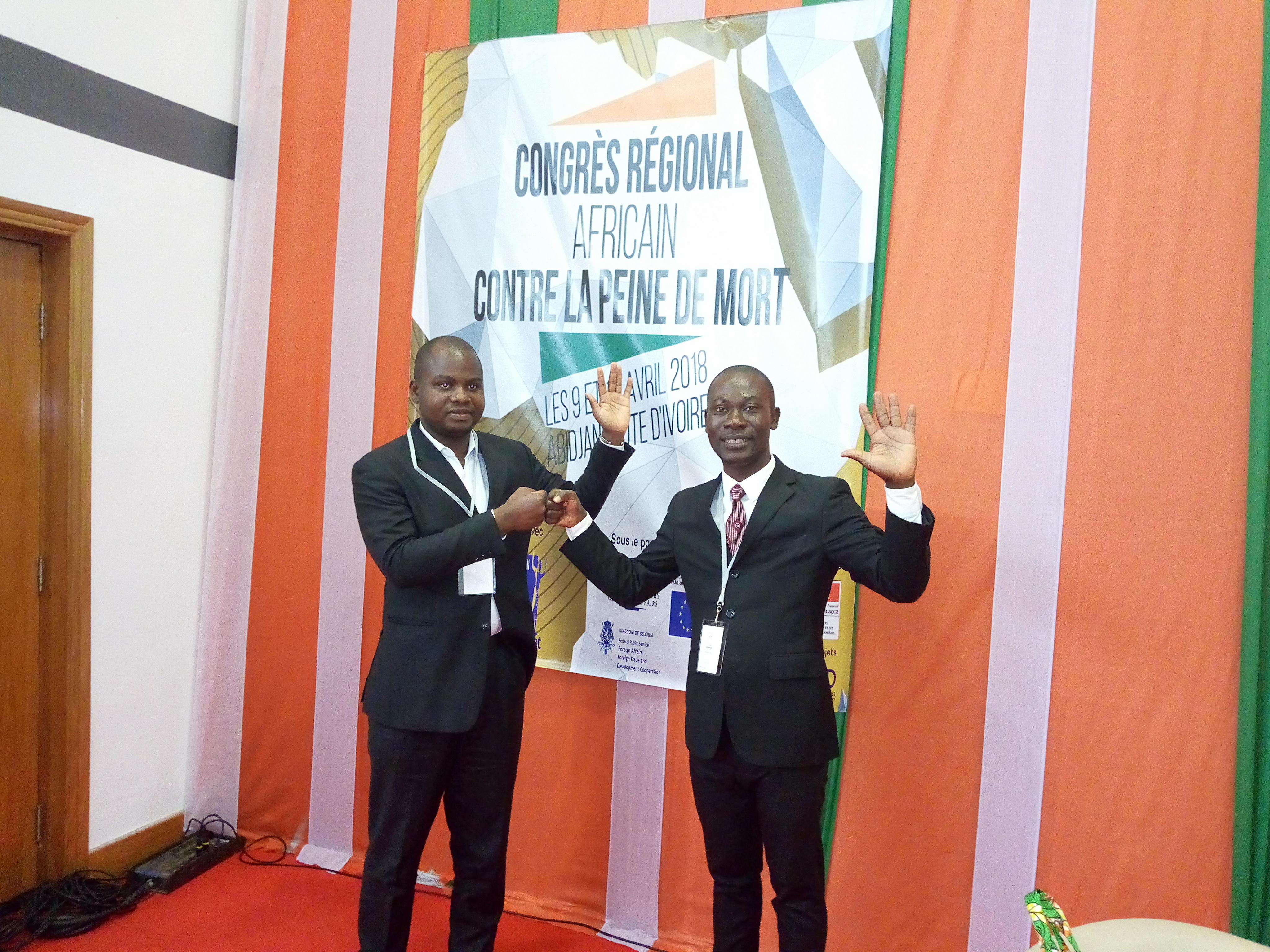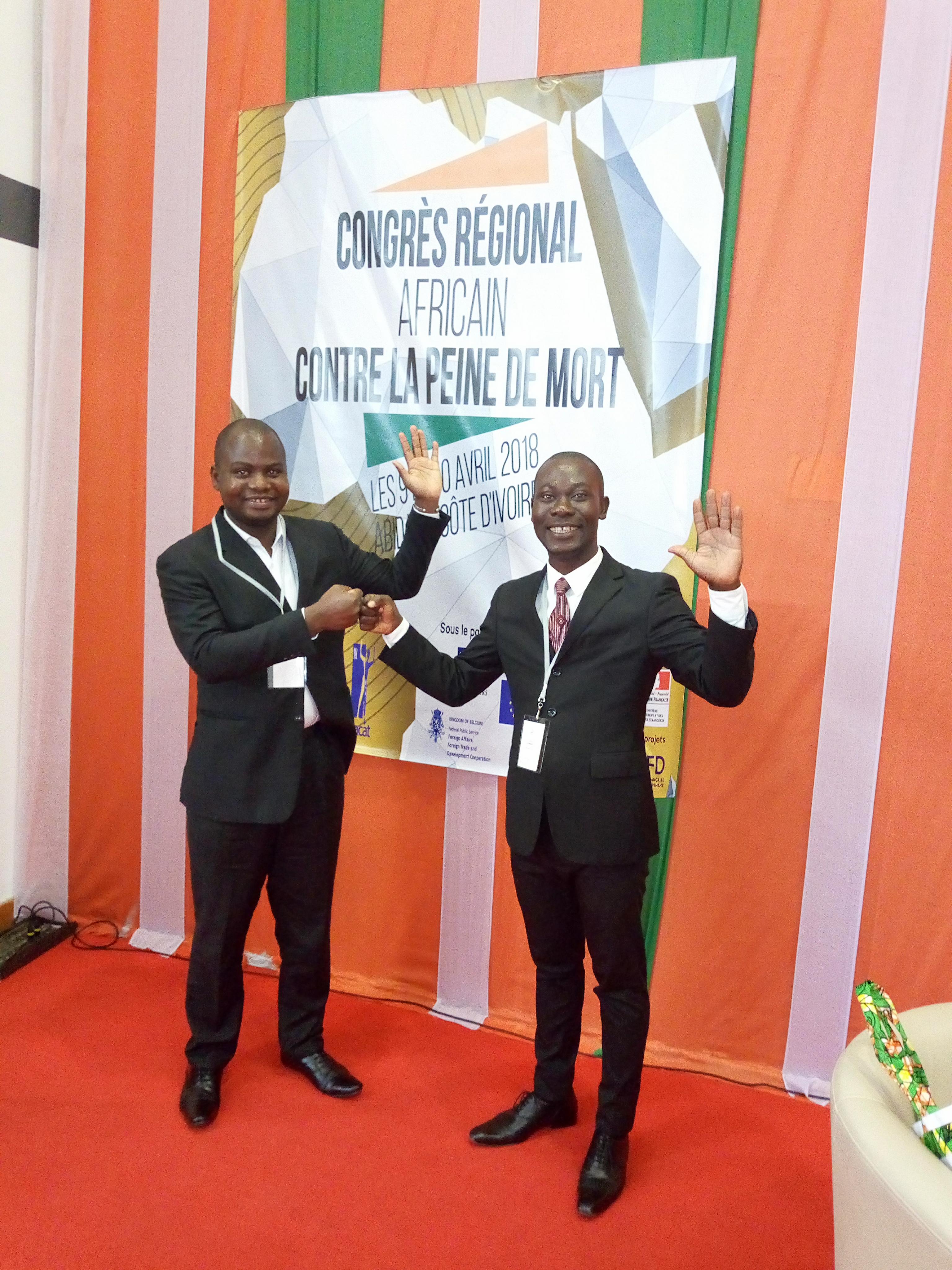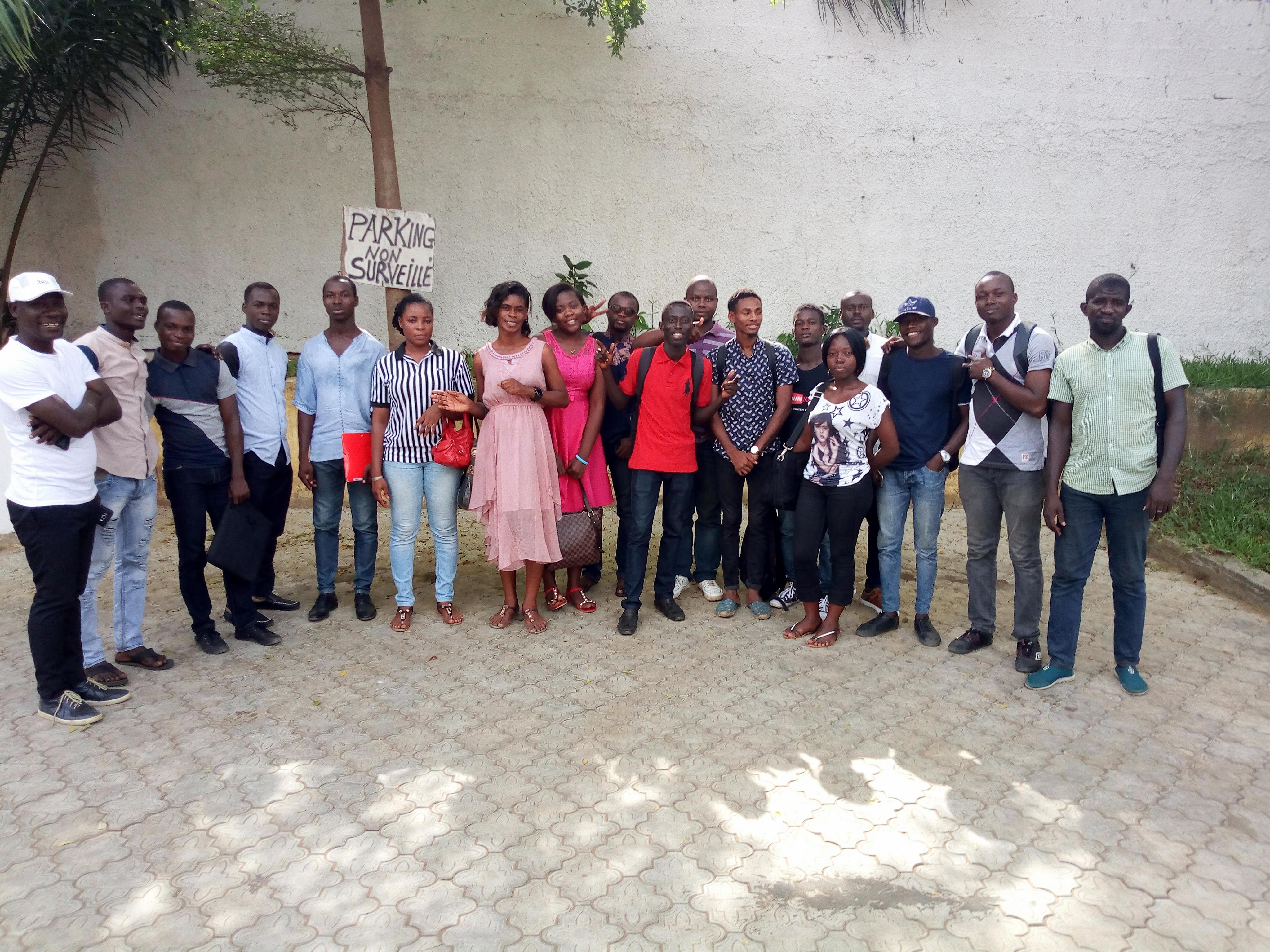

DÉCLARATION FINALE DU CONGRES RÉGIONAL AFRICAIN SUR LA PEINE DE MORT
Nous,
Participants au Congrès régional africain d’Abidjan (Côte d‘Ivoire) organisé du 9 au 10 avril 2018, par l’association ECPM – Ensemble Contre la Peine de Mort en partenariat avec la Coalition mondiale contre la peine de mort, la FIACAT et la CNDH-CI ;
ADOPTONS la présente Déclaration au terme de deux jours d’intenses débats, d’échanges d’expériences, de témoignages et de déclarations officielles ;
NOUS RÉJOUISSANT :
– que le mouvement abolitionniste se développe, dans un monde où près des 3/4 des Etats ont renoncé, en droit ou en fait, à l’application de la peine capitale ;
– que sur les 55 États africains 4/5e sont abolitionnistes : 20 ont aboli la peine capitale pour tous les crimes et 22 observent un moratoire sur les exécutions ;
– que depuis 10 ans, 7 États africains ont aboli la peine de mort : Bénin, Burundi, Congo, Gabon, Guinée, Madagascar, Togo.
RAPPELONS :
– que le droit à la vie est protégé par tous les textes internationaux et régionaux de protection des droits de l’homme, et notamment par l’article 6 du Pacte international relatif aux droits civils et politiques, et l’article 4 de la Charte africaine des droits de l’homme et des peuples ;
– que l’abolition de la peine de mort est essentielle à la protection efficace du droit à la vie et à la reconnaissance pleine et entière de la dignité inhérente à tous les êtres humains ;
– qu’aucune disposition du droit international ne prévoit la peine de mort pour les crimes les plus graves (génocides et crimes contre l’humanité crimes de guerre).
MAIS CONSTATANT :
– que la lutte contre le terrorisme est détournée par certains gouvernements pour étendre le champ d’application de la peine de mort et reprendre les exécutions ;
– que la peine de mort est pratiquée de manière discriminatoire notamment en fonction du statut socio-économique et de l’orientation sexuelle ;
– que les condamnés à mort subissent en raison de leur statut, des conditions de détention qui constituent un traitement cruel, inhumain et dégradant ;
– qu’il demeure 13 pays en Afrique qui maintiennent la peine de mort et l’appliquent souvent de manière arbitraire.
SOULIGNANT LA NÉCESSITE DE FRANCHIR DE NOUVELLES ÉTAPES SIGNIFICATIVES VERS L’ABOLITION TOTALE DE LA PEINE DE MORT EN AFRIQUE,
NOUS APPELONS :
Les organisations intergouvernementales internationales et régionales :
– à poursuivre et intensifier leur coopération avec les États et la société civile pour promouvoir l’abolition de la peine de mort en Afrique ;
– à adopter au plus vite le projet de Protocole additionnel à la Charte africaine des droits de l‘homme et des peuples portant sur l’abolition de la peine de mort en Afrique.
Les Etats présents au Congrès d’Abidjan :
– la Côte d’Ivoire et la Guinée : à ratifier le deuxième Protocole facultatif se rapportant au Pacte international relatif aux droits civils et politiques;
– le Burkina Faso : à adopter le projet de Constitution prévoyant l’abolition de la peine de mort ;
– le Tchad : à abroger la loi sur le terrorisme de juillet 2015 ;
– la RDC : à voter en faveur de la résolution des Nations unies appelant à un moratoire sur les exécutions capitales.
Les États rétentionnistes africains :
– à abolir la peine de mort pour tous les crimes ;
– à instaurer un moratoire sur les condamnations à mort et les exécutions, conformément aux résolutions des Nations unies et de la Commission africaine des droits de l’homme et des peuples ;
– à supprimer la peine de mort obligatoire ;
– à recueillir et publier des informations régulières, fiables scientifiquement et produites de manière indépendante sur l’application de la peine de mort.
Les États abolitionnistes africains en droit ou de fait :
– à abolir la peine de mort pour tous les crimes ;
– à ratifier le deuxième Protocole facultatif se rapportant au Pacte international relatif aux droits civils et politiques ;
– à soutenir l’adoption du projet de Protocole additionnel à la Charte africaine des droits de l’homme et des peuples portant sur l’abolition de la peine de mort en Afrique ;
– à voter en faveur de la résolution de l’AGNU appelant à un moratoire universel sur les exécutions capitales en 2018 et à devenir co-sponsor de cette résolution ;
– à soutenir les acteurs de la société civile oeuvrant en faveur de l’abolition de la peine de mort.
Les parlementaires africains à :
– se regrouper en réseaux nationaux, régionaux et internationaux et porter le débat de l’abolition au coeur de leurs parlements.
Les Institutions nationales des droits de l’homme (INDH) :
– à intégrer systématiquement les questions relatives à la peine de mort dans leurs plans d’action et inciter leurs Etats à abolir la peine de mort et à voter en faveur de la Résolution de l’Assemblée générale des Nations unies appelant à un moratoire universel sur la peine de mort.
La société civile abolitionniste :
– à rejoindre la Coalition mondiale contre la peine de mort ;
– à constituer ou à rejoindre des coalitions nationales contre la peine de mort ;
– engager des actions de sensibilisation et d’éducation à l’abolition auprès du public, des décideurs politiques, des médias, des faiseurs d’opinion et des professions juridiques.
Abidjan, le 10 Avril 2018





















